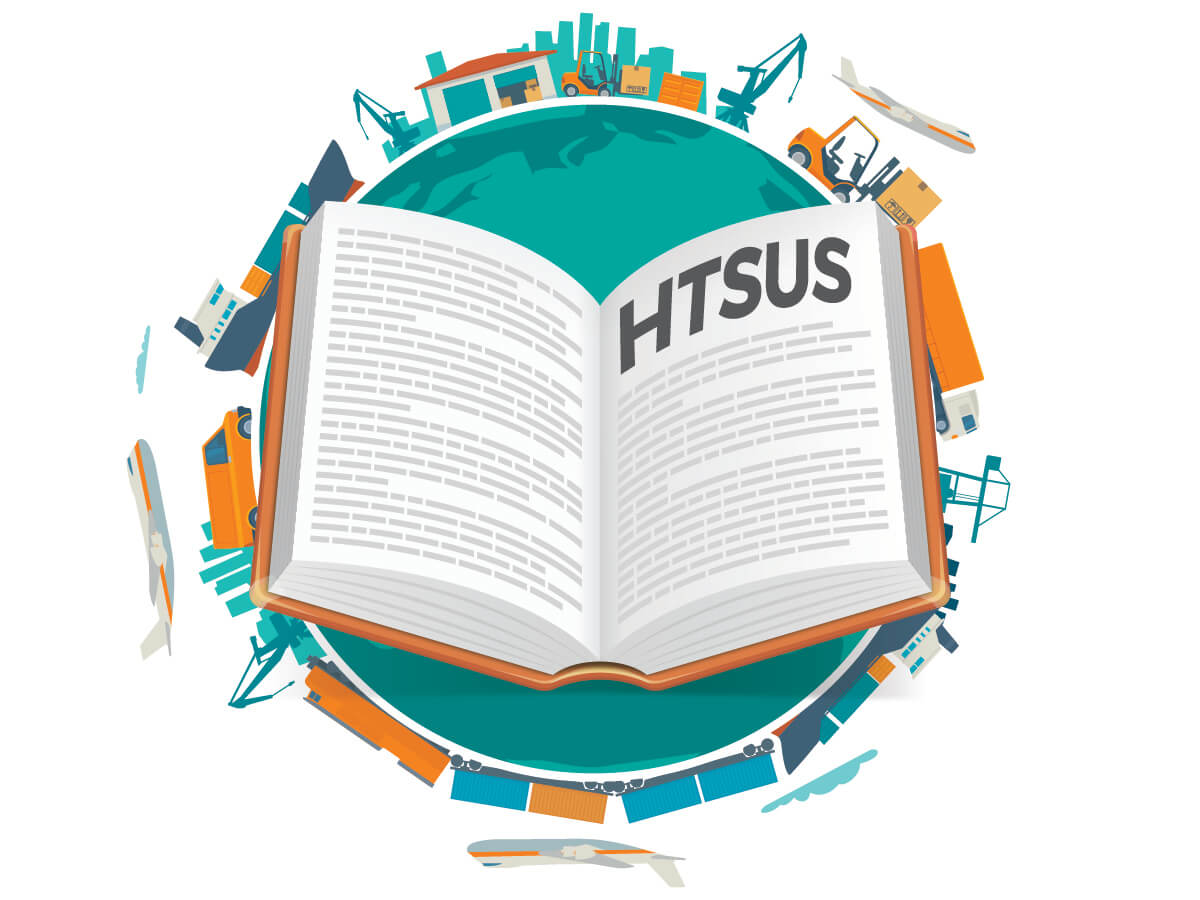
The Harmonized Tariff Schedule of the United States (HTSUS) is the basis for the tariff classification of all products imported into the U.S.
Key Takeaways:
Read on to learn more about the HTSUS, how to use these codes, and how a licensed customs broker can help you identify the correct codes for your products.
The HTSUS was enacted on Jan. 1, 1989 as a standardized classification system for all products imported into the United States. It is maintained and published by the U.S. International Trade Commission (USITC), but interpreted and enforced by Customs and Border Protection (CBP).
Just like the Harmonized System (HS), which serves as the foundation of this tariff schedule, the HTSUS is made up of 21 sections, 99 chapters, and thousands of headings and subheadings. Each of these labels are used to create a unique, 10-digit code (known as an HTS code) for every product imported into the country.
Related: Harmonized System 101: An Importer's Guide to HS Codes
Importers will need to use the proper HTSUS codes on all customs entries and import documentation. This is to ensure compliance with U.S. import regulations and accurate documentation on what is allowed entry into the country.
HTSUS codes provide a standardized system to classify all imported goods entering the United States. Each product is assigned a unique code that specifies its nature, composition, and use, facilitating accurate categorization. Each of these qualities can impact how much duty is charged on the product, and how it is regulated.
Related: Explaining The Difference Between HTS Code vs. HS Code
These codes are crucial in determining the tariff rates and duties applicable to imported goods. The HTS code assigned to a product dictates the specific import duty rate, which can vary based on the product type and its country of origin. A minor difference in HTS code can make a big difference in tariff rate.
Accurate use of classification codes ensures compliance with U.S. customs regulations. Misclassification can lead to penalties, fines, and delays in the import process. Importers must use the correct HTS codes to meet legal requirements and avoid sanctions.

Not sure which HS or HTS code to use? Leave it to the professionals.
Book a consulting session with a customs expert.
HTSUS codes are used to apply preferential tariff rates under various trade agreements. For example, goods imported from countries with which the U.S. has free trade agreements may qualify for reduced or zero tariffs if classified correctly under the relevant HTSUS codes.
These commodity codes help identify goods subject to import restrictions, prohibitions, or special requirements. Certain products may require additional documentation, certifications, or compliance with specific regulations based on their classification.
The U.S. government and international trade organizations use HTS codes to collect and analyze statistical data on trade flows. This data helps in monitoring trade patterns, economic planning, and policy-making.
Yes, licensed customs brokers can handle identifying HTSUS codes for your imports. They can also act as a liaison for obtaining a binding ruling from CBP. Alternatively, you could try searching yourself with a lookup tool.
Related: How Do I Find My HTS Code?: Determining Harmonized Tariff Codes
However, it is the responsibility of the importer of record (IOR) to make sure the cargo is classified correctly and assigned the right HTSUS codes. A good rule of thumb for importers is to work closely with a customs broker on documentation. A broker who also acts as the IOR takes responsibility for the accuracy of all documents in an import transaction.
Related: What is the Penalty for Using the Wrong HTS Code?
Now that you know more about HTSUS codes and how to use them, you can get even more assistance by working with USA Customs Clearance. We’ll make sure you have the right codes associated with your imports so that you have a worry-free transaction.
Just like many aspects of clearing customs, HTSUS codes aren’t always straightforward. So when you need clarification on any aspect of your import, you can schedule a consulting session with one of USA Customs Clearance’s licensed customs brokers.
You’ll get personalized attention where you can ask any question regarding your shipment, including your HTS code. Have more questions? Give us a call at (855) 912-0406 and get started today.

Not sure which HS or HTS code to use? Leave it to the professionals.
Book a consulting session with a customs expert.
 Copy URL to Clipboard
Copy URL to Clipboard
Add your first comment to this post